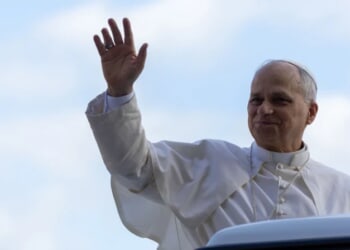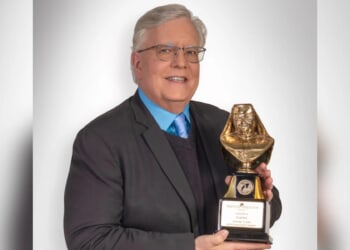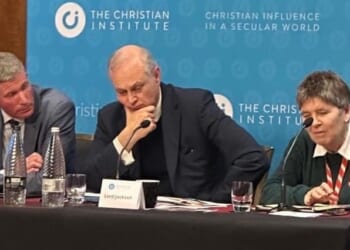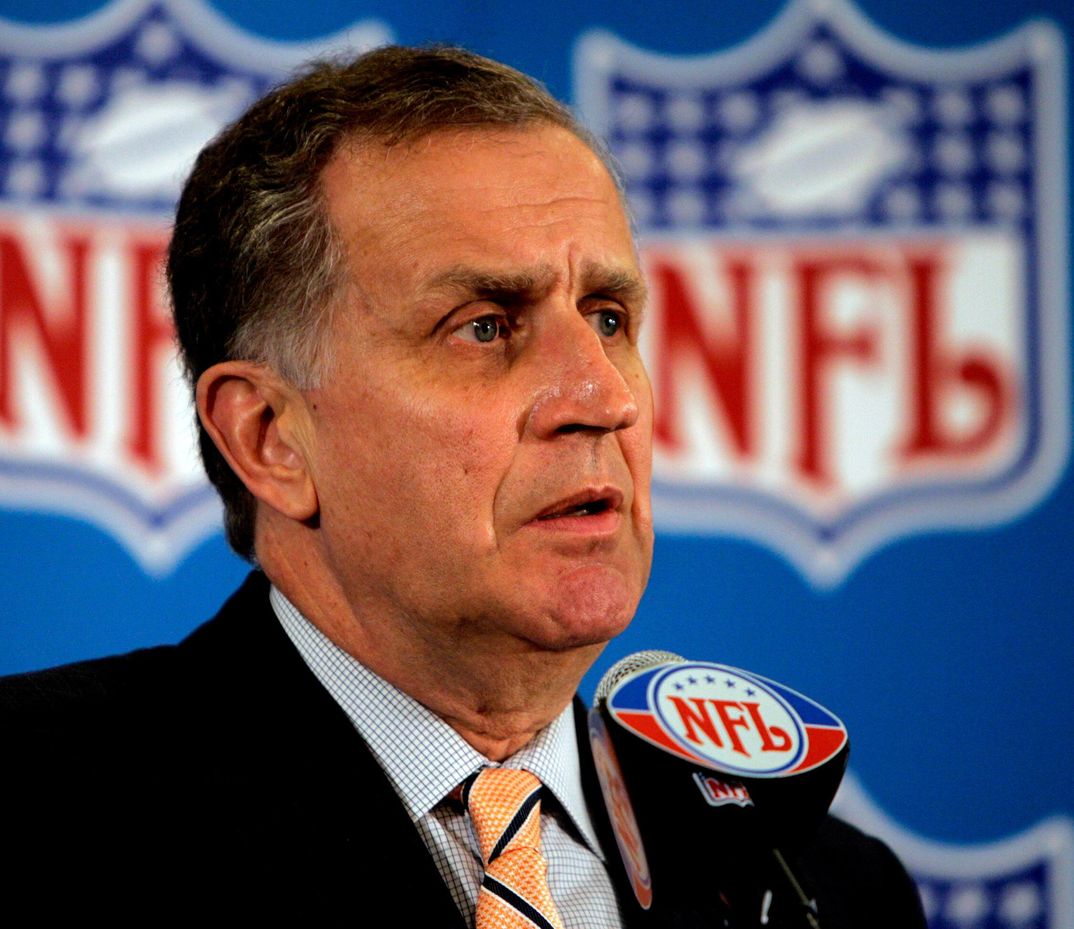
NEW YORK — Paul Tagliabue, who helped bring labor peace and riches to the NFL during his 17 years as commissioner but was criticized for not taking stronger action on concussions, died Sunday from heart failure. He was 84.
NFL spokesman Brian McCarthy said Tagliabue’s family informed the league of his death in Chevy Chase, Maryland.
Tagliabue, who had developed Parkinson’s disease, was commissioner after Pete Rozelle from 1989 to 2006. He was elected to the Pro Football Hall of Fame as part of a special centennial class in 2020. Current Commissioner Roger Goodell succeeded Tagliabue.
“Paul was the ultimate steward of the game — tall in stature, humble in presence and decisive in his loyalty to the NFL,” Goodell said in a statement. “I am forever grateful and proud to have Paul as my friend and mentor. I cherished the innumerable hours we spent together where he helped shape me as an executive but also as a man, husband and father.”
News of Tagliabue’s death came shortly before seven games kicked off Sunday. Several teams held moments of silence throughout the day for Tagliabue and Marshawn Kneeland, the Dallas Cowboys defensive tackle who died on Thursday.
Tagliabue oversaw the construction of myriad new stadiums and negotiated television contracts that added billions of dollars to the league’s bank account. Under him, there were no labor stoppages.
During his time, Los Angeles lost two teams and Cleveland another, migrating to Baltimore before being replaced by an expansion franchise. Los Angeles eventually regained two teams.
Tagliabue implemented a policy on substance abuse that was considered the strongest in all major sports. He also established the “Rooney Rule,” in which all teams with coaching vacancies must interview minority candidates. It has since been expanded to include front-office and league executive positions.
When he took office in 1989, the NFL had just hired its first Black head coach of the modern era. By the time Tagliabue stepped down in 2006, there were seven minority head coaches in the league.
In one of his pivotal moments, Tagliabue called off NFL games the weekend after the terrorist attacks of Sept. 11, 2001. It was one of the few times the public compared him favorably to Rozelle, who proceeded with the games two days after President John Kennedy was assassinated on Nov. 22, 1963. A key presidential aide had advised Rozelle that the NFL should play, a decision that was one of the commissioner’s great regrets.
Tagliabue certainly had his detractors, notably over concussions. The issue has plagued the NFL for decades, though team owners had a major role in the lack of progress in dealing with head trauma.
In 2017, Tagliabue apologized for remarks he made decades ago about concussions in football, acknowledging he didn’t have the proper data at the time in 1994. He called concussions “one of those pack-journalism issues” and contended the number of concussions “is relatively small; the problem is the journalist issue.”
“Obviously,” he said on Talk of Fame Network, “I do regret those remarks. Looking back, it was not sensible language to use to express my thoughts at the time. My language was intemperate, and it led to a serious misunderstanding.
“My intention at the time was to make a point which could have been made fairly simply: that there was a need for better data. There was a need for more reliable information about concussions and uniformity in terms of how they were being defined in terms of severity.”
While concussion recognition, research and treatment lagged for much of Tagliabue’s tenure, his work on the labor front was exemplary.
As one of his first decisions, Tagliabue reached out to the players’ union, then run by Gene Upshaw, a Hall of Fame player and former star for Al Davis’ Raiders. Tagliabue had insisted he be directly involved in all labor negotiations, basically rendering useless the Management Council of club executives that had handled such duties for nearly two decades.
Tagliabue forged a solid relationship with Upshaw. In breaking with the contentious dealings between the league and the NFL Players Association, Tagliabue and Upshaw kept negotiations respectful and centered on what would benefit both sides. Compromise was key, Upshaw always said — although the union often was criticized for being too accommodating.
Tagliabue had been the NFL’s Washington lawyer, a partner in the prestigious firm of Covington & Burling. He was chosen as commissioner in October 1989 over New Orleans general manager Jim Finks after a bitter fight highlighting the differences between the NFL’s old guard and newer owners.
Tagliabue was born on Nov. 24, 1940, in Jersey City, New Jersey. He was the 6-foot-5 captain of the basketball team at Georgetown and graduated in 1962 as one of the school’s leading rebounders at the time — his career average later listed just below that of Patrick Ewing. He was president of his class and a Rhodes scholar finalist. Three years later, he graduated from NYU Law School and subsequently worked as a lawyer in the Defense Department before joining Covington & Burling.
He eventually took over the NFL account, establishing a close relationship with Rozelle and other league officials during a series of legal actions in the 1970s and 1980s.
Tagliabue is survived by his wife, Chandler, son Drew and daughter Emily.

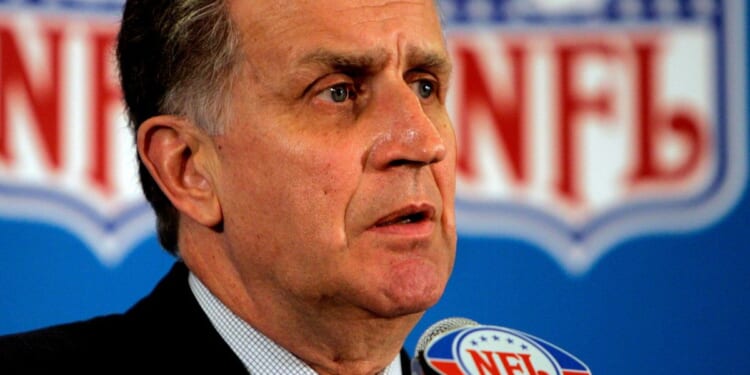
![Scott Bessent Explains The Big Picture Everyone is Missing During the Shutdown [WATCH]](https://www.right2024.com/wp-content/uploads/2025/11/Scott-Bessent-Explains-The-Big-Picture-Everyone-is-Missing-During-350x250.jpg)






![Virginia Democrat Candidate's Leaked Texts Are So Bad Even MSNBC Turns on Him [WATCH]](https://www.right2024.com/wp-content/uploads/2025/10/Virginia-Democrat-Candidates-Leaked-Texts-Are-So-Bad-Even-MSNBC-350x250.jpg)

